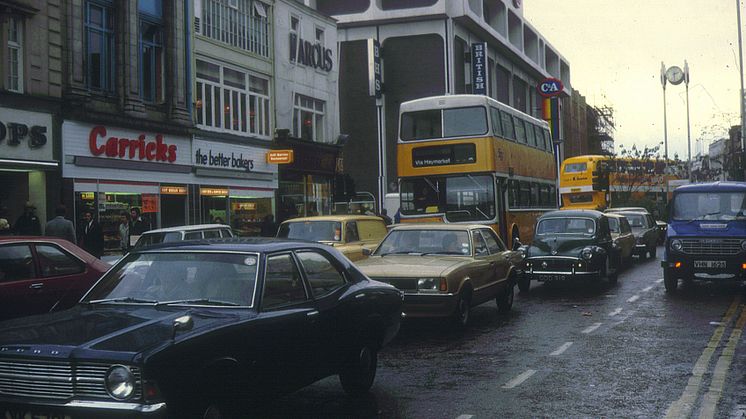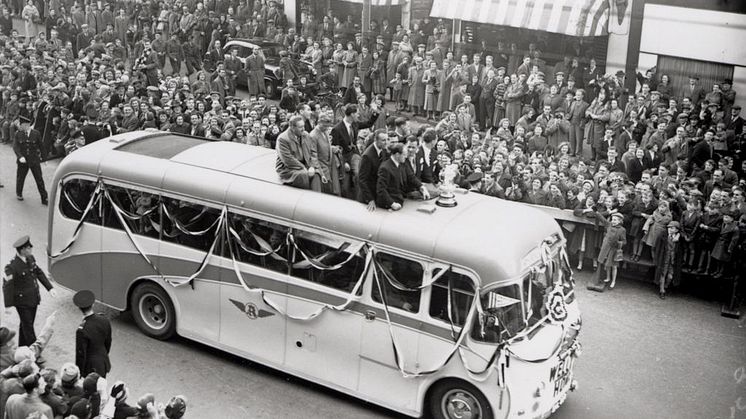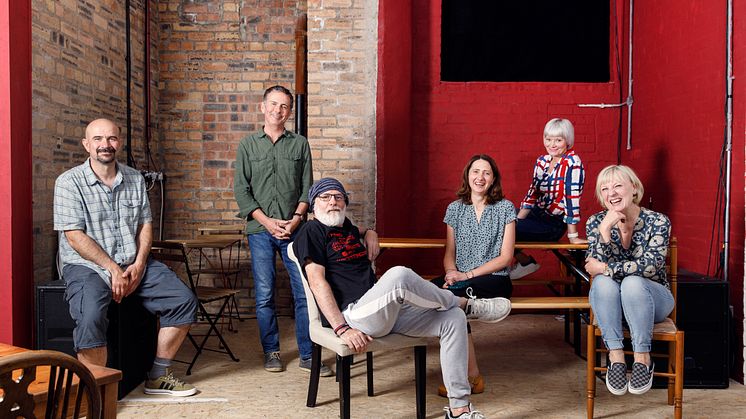
Press release -
Memories brought to life in city arts project
Northumbria University has received a £60,000 grant to help develop new ways for people to share and access heritage and memories of significant events in Newcastle city centre.
Working in partnership with Tyne and Wear Archives and Museums and FaulknerBrowns Architects, the University will investigate how museum artefacts or historical events can be brought to life with input from members of the public, using technology in settings in and around the city.
The nine-month long research project has been jointly-funded by the Arts & Humanities Research Council (AHRC) and the Engineering and Physical Sciences Research Council (EPSRC) as part of a national scheme worth £1.88 million to explore the future of immersive experiences.
It will see academics from Northumbria’s Geography, Architecture, Computing and Humanities departments share their expertise in heritage studies, urban design, virtual environments, human-computer interaction and participatory methodologies with architects, urban planners, artists and experts from the North East’s digital innovation cluster.
They will produce a development framework and prototype ideas that will help the creation of immersive experiences and memory-based connections with the past in public spaces, referred to as ‘memoryscapes’.
Lead researcher, Dr Jon Swords, a Senior Lecturer in Economic Geography at Northumbria University, explained: “One of the problems we are seeking to address is that so many of our museum collections are housed in archives and are rarely seen.
“We will be working with Tyne and Wear Archives and Museums to understand what assets they have and assess how we can best use them to create memoryscapes in public spaces. By bringing them to life outside of their usual contexts, we can encourage members of the public to add their own memories, to create new narratives.
“At this stage, the actual memoryscapes that we’ll explore are to be decided, but an example of what we could do is to project footage of historical events, such as the 1952 FA Cup Final, or recreations of places such as Stephenson’s works, into public spaces. Using virtual and augmented reality technologies, we can enable the public to become immersed in these moments and encourage them to participate by adding or uploading their own memories and responses.”
The project will coincide with the Great Exhibition of the North, providing a unique opportunity to engage with the public on ways to bring these memoryscapes to life.
It will also support the work FaulknerBrowns is undertaking with Newcastle City Council on a major scheme to regenerate the area around Northumberland Street. This research will inform part of their planning on what could be delivered in the newly modelled city centre.
Dr Swords added: “We have some outstanding digital businesses in the North East of England. They are at the forefront of some amazing new technologies but what they don’t always have is the content to utilise them to their maximum potential.
“This project will bring together the vast collections of Tyne and Wear Archives and Museums with the excellent skills of our digital sector; the academic expertise of the University and the planning and development teams at FaulknerBrowns and Newcastle City Council who are designing the new spaces within the city centre, to create some truly innovative experiences for the public.”
Lindy Gilliland, Manager of Collections and Research at Tyne & Wear Archives & Museums, said: “We care for some of the region’s most historically significant collections which comprise fine and decorative art, science and technology, natural sciences, costume, archaeology, world cultures, military and social history. We also hold the region’s archives, which are a tremendous resource for investigating local and regional history. We’re hoping that the Memoryscapes project will encourage more public access to both everyday and internationally significant objects and documents.”
Tania Love, Director at of FaulknerBrowns Architects, said: “We have been working with Newcastle City Council and NE1, preparing a series of interventions to reinvigorate the Northumberland Street Area to help position Newcastle as a vital, regional European capital. The masterplan aims to make the area a more vibrant, attractive and inclusive destination. This exciting Memoryscape project could helpfully contribute to this ambition and lead to some highly innovative and interactive experiences for residents, workers and visitors alike.”
The project forms part of Northumbria University’s multi-disciplinary research into Digital Living and how digital technology can be used to make the experience of living and working in a city better. The University is bringing together world-leading experts in artificial intelligence, information processing and modelling, architecture, built environment and human-computer interaction to explore the future of the human-centred smart city.
For more information on the project, visit www.northumbria.ac.uk/memoryscapes or follow Memoryscapes on Twitter.
Topics
Northumbria is a research-rich, business-focused, professional university with a global reputation for academic excellence. To find out more about our courses go to www.northumbria.ac.uk
If you have a media enquiry please contact our Media and Communications team at media.communications@northumbria.ac.uk or call 0191 227 4604.










